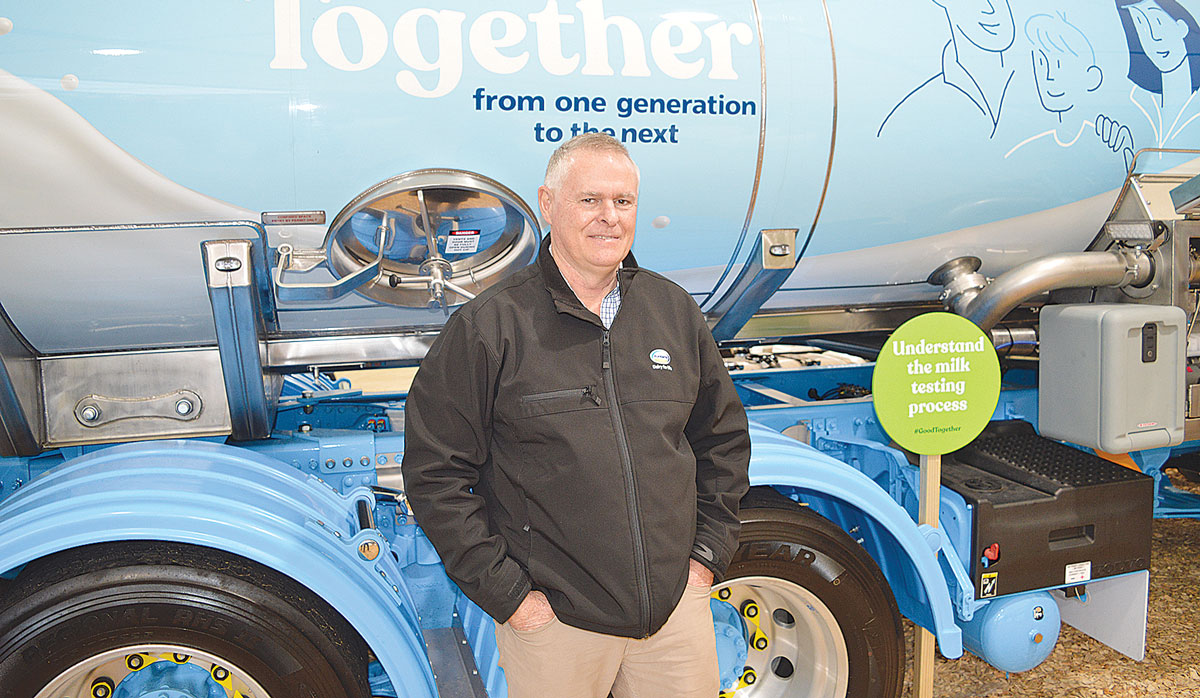Out with Fonterra, in with Mainland Dairy
Changed logos on shirts otherwise it will be business as usual when Fonterra’s consumer and related businesses are expected to change hands next month.
The Government is aiming to address a number of risks created by Fonterra's capital restructure.
While the Government has agreed to progress enabling legislation for Fonterra's capital structure changes, Jarden head of research Arie Dekker says it has flagged a number of concerns.
These include impacts on contestability of milk supply; a suppressed share price in the restricted farmers-only market; higher prices for farmers' milk could flow through to NZ consumers; and value will be eroded for unit holders in the unit fund (Fonterra Shareholders Fund).
"Having looked at various options, the Government has decided to support the capital restructuring and amend the Dairy Industry Restructuring Act (DIRA) to specifically enable the unit fund to remain partially delinked on a permanent basis.
"For Fonterra we consider this is an important step forward."
Dekker points out that in light of the risks that have been identified around contestability for farmers' milk supply and its impact on value creation for the wider dairy industry, the Government has agreed existing DIRA regulatory settings should be strengthened to reduce these risks.
"These fall into three buckets, with industry consultation being sought on them. The consultation is not seeking comment on the capital restructure or other regulatory or alternative Government responses to the co-op's capital restructuring."
Dekker says Fonterra was likely to readily accept two of the three proposed responses from the Government.
"These changes to DIRA appear to seek to address some of the broad concerns that have been levelled at the capital structure changes.
"The Government is proposing to make amendments to support liquidity in the farmers-only market by requiring a market maker to maintain a range of minimum bid/ask spreads in the market, and require Fonterra to ensure independent financial markets (broker/other) research and analysis of its performance are easily accessible to farmers.
"There is acknowledgement that even at sufficient levels of liquidity in the farmers-only market, there would still be a structured restricted-market discount.
"The Government is also suggesting Fonterra maintain and publish a dividend and retentions policy, with this aimed at helping address the concern that the establishment of a farmers-only share market will see a substantially lower share price, which could artificially increase the attractiveness of shares to new or expanding dairy farmers."
Fonterra chairman Peter McBride acknowledged Agriculture Minister Damien O'Connor and MPI for "the constructive process to date and their work to develop proposed amendments to DIRA that support the flexible shareholding structure".
 |
|---|
|
Fonterra chairman Peter McBride. |
"The Government's aspirations for our industry are well aligned to the co-op's," McBride says.
"We all want a high performing dairy industry, and a successful and innovative Fonterra is central to that.
"A strong Fonterra can lead the industry, building New Zealand provenance, lifting the bar on environmental performance and ensuring sustainable returns for all New Zealand dairy farmers.
"A flexible shareholding model will help our co-op maintain a sustainable milk supply.
"A globally competitive co-op of scale is in everyone's best interests."
McBride says the Governmennt has signalled that while regulatory changes will not be in place by 1 June, it expects the amendments to DIRA to progress through Parliament this year.
"We are preparing to implement the flexible shareholding structure as soon as possible. Share compliance obligations will remain on hold until at least six months after the effective date for the new structure."
O'Connor says the Government is proposing a set of amendments to DIRA that strike a balance between recognising the shareholders' mandate for change and enabling the successful function of the wider dairy sector.
"The benefits of a high-performing and efficient Fonterra flow through its near 10,000 farmer-shareholders to our rural communities and across New Zealand's economy.
"The Fonterra cooperative is a key part of New Zealand's world-leading dairy industry and a major export earner for our economy, sending product to over 130 countries."
Around 95% of all dairy milk produced in New Zealand is exported, with export revenues of approximately $19.1 billion a year. It accounts for 35% of New Zealand's total merchandise exports and around 3.1% of GDP. The industry employs around 49,000 people.
"The success of our dairy sector and the broader primary industries will underpin our economic recovery from Covid-19," O'Connor said.
Changed logos on shirts otherwise it will be business as usual when Fonterra’s consumer and related businesses are expected to change hands next month.
Reflecting on the past year, Horticulture New Zealand chief executive Kate Scott says there has been a lot to celebrate.
Ministry for Primary Industries (MPI) Director General Ray Smith is giving a big shout-out to the horticulture sector, especially kiwifruit.
Early forecasts for New Zealand's apples and pears point to a standout season marked by exceptional fruit quality and high pack-out rates.
Tickets are now available for Beef + Lamb New Zealand’s (B+LNZ) Out the Gate, returning from 19-21 May 2026 at Te Pae, Christchurch.
Dairy Women's Network (DWN) is welcoming AgriHealth as a new partner.
OPINION: Fonterra may be on the verge of selling its consumer business in New Zealand, but the co-operative is not…
OPINION: What does the birth rate in China have to do with stock trading? Just ask a2 Milk Company.